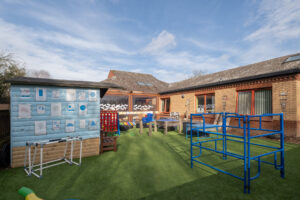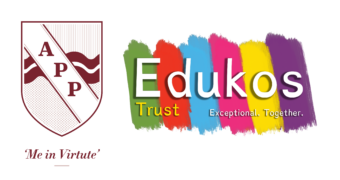Tel: 01405 762086
Email: [email protected]
Admissions Information
Tel: 01405 762086
Email: [email protected]
Admissions Information
About Us
 Situated at the heart of a small, picturesque village beside the mouth of the River Aire and River Ouse, Airmyn Park Primary fosters a love of learning that the children in our community can carry with them throughout their lives.
Situated at the heart of a small, picturesque village beside the mouth of the River Aire and River Ouse, Airmyn Park Primary fosters a love of learning that the children in our community can carry with them throughout their lives.
The School’s present building was opened in 1991, and has four classrooms, together with a hall, communal areas and offices, and lots of outdoor space to explore! Before moving to this building, Airmyn’s school was located on High Street, in a building that was built in 1834 by the Earl of Beverley. It was intended to be a Sunday School, but was being used as a day-school by 1840, and was able to accommodate 120 pupils!
In 2018, Airmyn Park Primary School joined Swanland Education Trust as an academy school. Swanland Education Trust became Edukos Trust in 2021.
We have recently worked on developing our school values to ensure they mean something to our current children and that they are lived by all members of our school community. Each week we hold an assembly to talk about the importance of our school values. We celebrate those children who have demonstrated our school values during the week in their classes or in the dining hall. We are keen to share our school values with everyone. We use the acronym PARK to help us remember our values.
P – positivity
A – ambition
R – respect
K – kindness
airmyn_positivity_A3
airmyn_respect_A4
airmyn_kindness_A4
airmyn_ambition_A4
At Airmyn Park Primary School, we develop and promote British Values throughout our school and within our curriculum.
“We want every school to promote the basic British Values of democracy, the rule of law, individual liberty, and mutual respect and tolerance for those of different faiths and beliefs.” Lord Nash
A key part of our plan for education is to ensure children become valuable and fully rounded members of society who treat others with respect and leave school fully prepared for life in modern Britain.
British Values
- The Rule of Law
- Democracy
- Individual Liberty
- Mutual Respect
- Tolerance for those of different faiths and beliefs
To do this our children will develop;
- An understanding of how citizens can influence decision-making through the democratic process
- An understanding that the freedom to hold other faiths and beliefs is protected in law
- An acceptance that people having different faiths and beliefs to oneself (or having none) should be accepted and tolerated, and should not be the cause of discriminatory behaviour
- An understanding of the importance or identifying and combating discrimination
